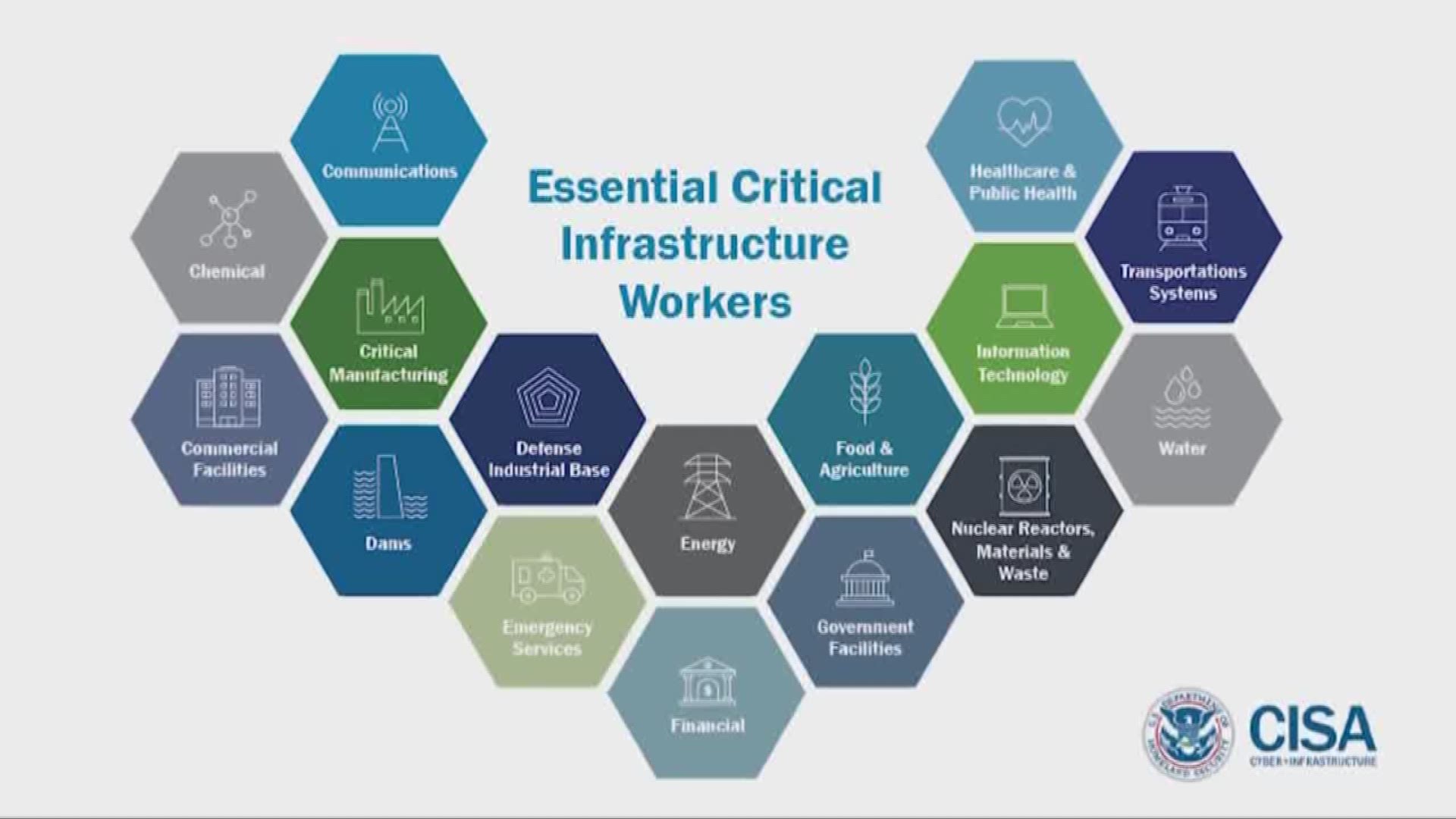CALIFORNIA, USA — Now that most employees are being asked, or even told, to stay home to stop the spread of the coronavirus, the term "essential worker" has repeatedly popped up.
So what makes someone "essential"?
Cybersecurity and Infrastructure Security Agency (CISA), which is the under the umbrella of the U.S. Department of Homeland Security, provides guidance about the nation's critical infrastructure, working with both the public and private sectors to deliver infrastructure resilience assistance and guidance.
The agency creates a list of "Essential Critical Infrastructure Workers" to help state and local officials protect communities while ensuring continuity of functions.
The list is comprised of 16 sectors, including Basic sectors include things like: Food & Agriculture, Water, Energy, Financial and Communications.
Other sectors include government functions such as Healthcare & Public Health, Emergency Services, Defense, Transportation Systems, Government Facilities and Information Technology. Still, remaining sectors include operations such as Critical Manufacturing, Commercial Facilties, Nuclear Reactors, Materials & Waste, Chemical and Dams.
So what services are considered essential?
Many are things that immediately come to mind: physicians, law enforcement, first responders, grocery store workers, farmers, utility workers, trash collectors and banks.
Still, other essential services may be surprising to some. They include construction, blood donation, news media, plumbing, janitors, exterminators and even dry cleaners.
Follow the conversation on Facebook with Mike Duffy.
READ MORE:
FOR THE LATEST CORONAVIRUS NEWS,
DOWNLOAD THE ABC10 APP:
►Stay In the Know! Sign up now for ABC10's Daily Blend Newsletter



